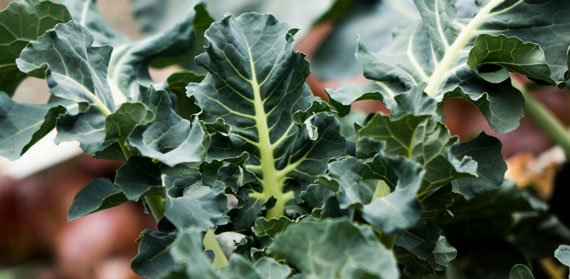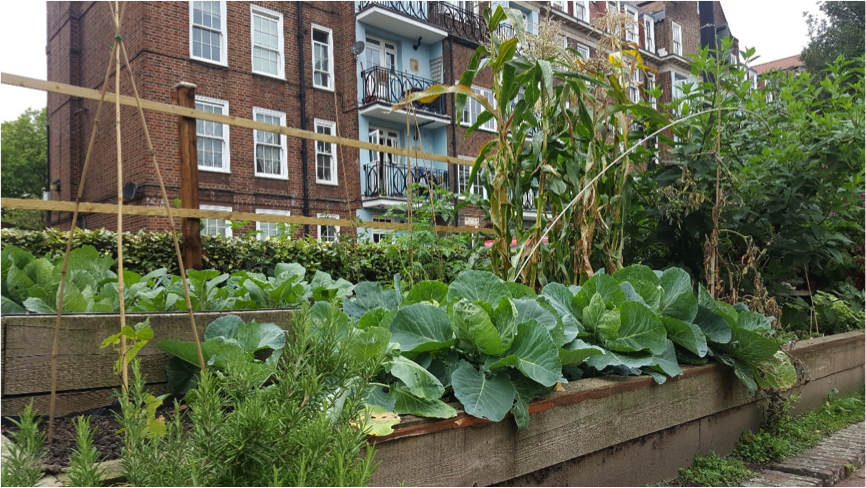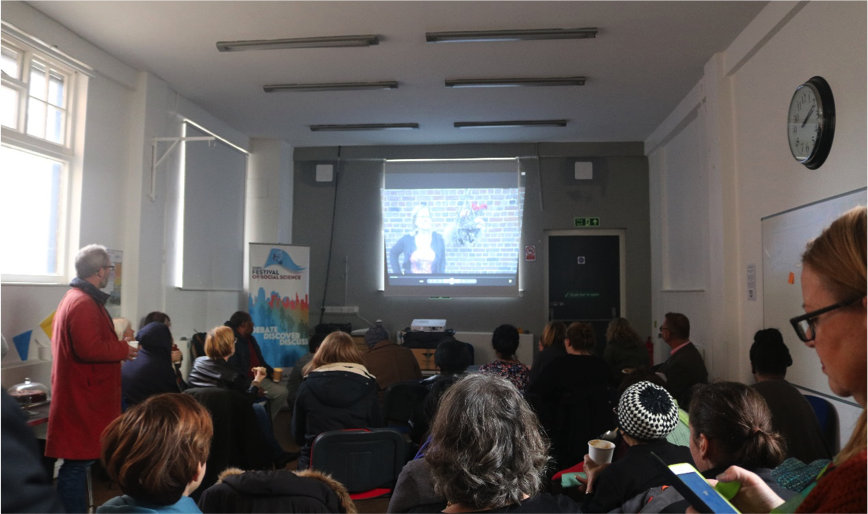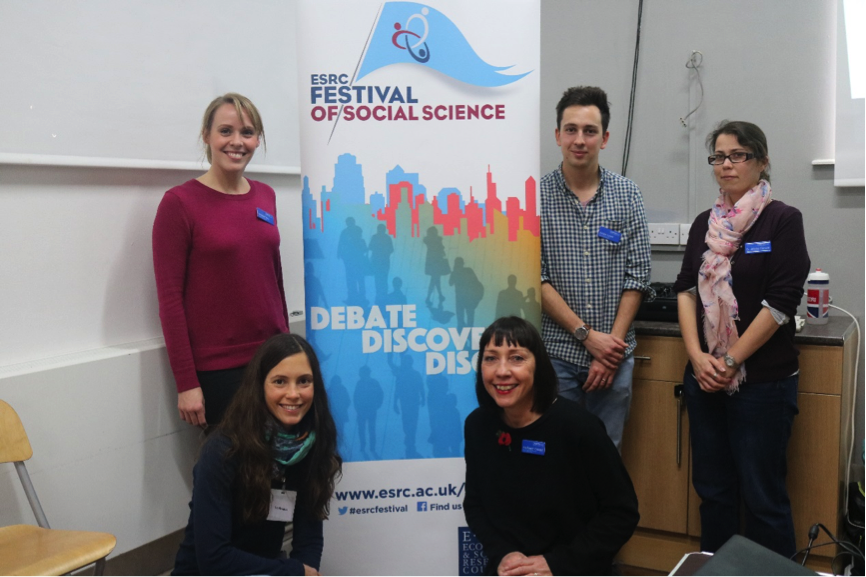Guest post by Elizabeth Bos, Centre for Business in Society
As part of the ESRC’s annual Festival of Social Science week, Lambeth’s dynamic food growing community was celebrated at Edmundsbury Community Hall, Brixton. The week, which saw events taking place across the country, aims to promote and increase the awareness of social science research to new, non-academic audiences. The purpose of this event was to showcase community food growing in Lambeth, drawing on findings from recent doctoral research on participation in community gardening. For the event, a film was produced by Coventry University in collaboration with Lambeth Council, Myatt’s Field Park and Urban Growth about community food growing in the borough. Consequently, findings from the study were shared with the Lambeth food growing community, and wider community, attracting a lively and engaged group of around 50 people. Council members, the local community, and third sector and voluntary organisations attended, comprising people currently involved in community food growing, as well as those who had no experience of it and had come to find out more about the role community gardening plays in their community, and how they could get involved. Feedback from the event shows how attendees valued the event and particularly enjoyed the opportunity to meet others from the community, as well as the local food supplied by Myatt’s Fields Park.
Edmundsbury Estate Community Garden
Community gardens, particularly in urban areas, have witnessed a substantial rise in recent years, across the world (Pourais et al., 2016; Firth et al., 2011). This is likely to be, in part, due to the many positive outcomes that are commonly associated with community gardening, which has resulted in range of stakeholders now having a more prominent role in such activities, including the public sector (Franklin et al., 2016; Crossan et al., 2016; Witheridge and Morris, 2016). These including benefits associated with wellbeing, physical and mental health, positive social and community interactions, access to greenspace, revitalising degraded land and the promotion of active citizenship(Lovell et al., 2014; Wakefield et al., 2007; Pitt, 2014; Metcalfe et al., 2012; Bell and Cerulli, 2012). Whilst there is increasing evidence supporting these outcomes, more can be known around the processes of participation in community gardens within the contexts in which they are situated (Mintz and McManus, 2014; Eizenberg and Fenster, 2015). A recent doctoral study explored this, in order to understand how people’s engagement can be better understood and how community garden activity can best be supported, in light of the impact they have on urban residents and communities. To do this, research was undertaken in Lambeth with a range of people 1) supporting community food growing, and 2) participating in community food growing across the borough.
Showcasing the film
There is certainly a strong and vibrant food growing community in Lambeth, with over 200 food growing groups across the borough, and various models supporting community food growing in the borough currently exist. In particular, the film was inspired by research undertaken with two ‘models’ supporting community food growing – Myatt’s Fields Park food hub supporting food growing in local community spaces, and the Council’s Edible Living project which supports food growing on estates. People’s experiences of community food growing were featured in the film, which also shared inspiring stories. A range of motivations underpinning people’s participation in community food growing were revealed through the research, relating to a desire to be more physical and socially connected to the local community. Once people had started to grow food with others, the well-known benefits of community food growing were experienced, which include improvements in health and wellbeing, reconnections to food, pointing towards more sustainable behaviours. The two examples featured in the study show how important it is to support people and communities to become involved in growing food – both practically and relationally. This has been evident in Lambeth through the provision of space and equipment as well as through supported sessions from a community gardener to share knowledge and to actively encourage people to become involved in their local communities.
The research team supporting the event (L-R Top: Elizabeth Bos, Jordon Lazell, Jennifer Ferreira. Bottom: Lisa Ruetgers, Marylyn Carrigan).
For further information about this research please contact Elizabeth Bos, Coventry University: e.bos@coventry.ac.uk







Comments are disabled